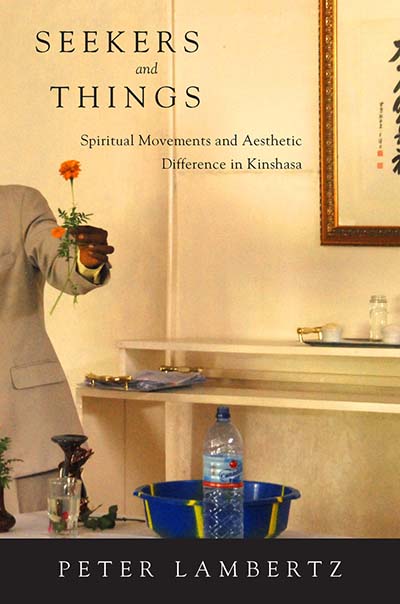“The analysis is supported by impressive ethnographic material and very useful comparisons with the mainstream form of religiosity in Kinshasa, that is, Pentecostal Christianity, and brilliantly achieves its aim to show how Japanese practices are ‘(re)produced’ (this is the term used by Lambertz) in Congo thus contributing to local religious expression and innovation. Even though Lambertz is an Africanist and not a specialist in Japanese religions, scholars in the latter field of studies will find plenty of food for thought in this rich work, which is also relevant to the broader field of research on religion, globalization, and hybridization.” • Religious Studies Review
“Peter Lambertz offers here an extremely interesting and original study focusing on two ‘new religions’ in the Congo.” • Anthropos
“Peter Lambertz’s Seekers and Things is an ethnographic study [that is] suitable for both students of religion and general lay readers…[It] provides us a close-up of new and old religions co-existing in a very cosmopolitan African city. It is a welcome addition to, and follows in the footsteps of, earlier works.” • Nova Religio
“Lambertz’s study offers a great example of the value of material religion scholarship, focusing on objects and the performance of aesthetic difference. Combining this framework with an analysis of conflicting semiotic ideologies also proves very fruitful…As a white European… Lambertz is put in a unique position, able to explore a very original topic in postcolonial DR Congo, with the promise of exciting research yet to come.” • Reading Religion
“This completely original book offers a vivid, innovative perspective on new religions in the postcolonial context of Central Africa. • Filip De Boeck, Institute for Anthroplogical Research in Africa, University of Leuven
“An exceptionally valuable study, addressing an original topic.” • Peter Geschiere, University of Amsterdam
Focusing on the intricate presence of a Japanese new religion (Sekai Kyûseikyô) in the densely populated and primarily Christian environment of Kinshasa (DR Congo), this ethnographic study offers a practitioner-orientated perspective to create a localized picture of religious globalization. Guided by an aesthetic approach to religion, the study moves beyond a focus limited to text and offers insights into the role of religious objects, spiritual technologies and aesthetic repertoires in the production and politics of difference. The boundaries between non-Christian religious minorities and the largely Christian public sphere involve fears and suspicion of "magic" and "occult sciences".
Peter Lambertz is a post-doc fellow at the German Historical Institute (Paris) and the Centre des recherches sur les politiques sociales in Dakar. He holds a joint PhD from the universities of Utrecht and Leipzig (Religious Studies/African Studies) and has been teaching at the Philosophat Edith Stein in Kisangani.
LC: BL2470.C6 L37 2017
BL: DRT ELD.DS.238355
BISAC: SOC002010 SOCIAL SCIENCE/Anthropology/Cultural & Social; REL017000 RELIGION/Comparative Religion
BIC: HRAC Comparative religion; JHMC Social & cultural anthropology, ethnography


